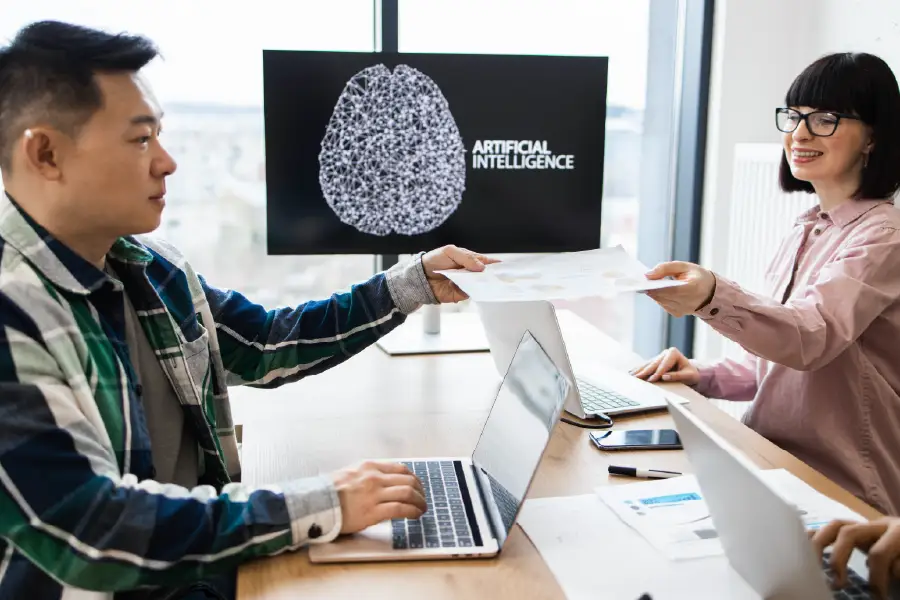COLLEGE PLANNING
Artificial intelligence (AI) is no longer confined to science fiction—it is a driving force reshaping the modern workplace. As AI technologies become integrated into various sectors, the skills employers seek from new graduates are evolving rapidly. To thrive in this dynamic environment, students and educators alike must prioritize AI-adjacent skills that prepare graduates for the future workforce.
This article highlights the most critical AI-related skills employers demand, explores academic programs integrating these capabilities, and offers actionable insights for students aiming to stay competitive in the AI-driven economy.

Explore More Articles
The Future of Education: AI Skills Every Graduate Needs
AI Boom: Industries on the Rise vs. Industries in Decline
AI for Educators: Degrees That Train You to Teach AI
Degrees That Will Thrive in the AI Business Era
The AI-Resistant Creative Skills You Should Build Now
Explore Degree Subjects
Understanding the skills employers prioritize helps graduates tailor their education and professional development to meet market needs. Here are the key AI-adjacent skills shaping the future:
Prompt engineering involves crafting effective inputs to guide AI models—such as language models—to produce desired outputs. This skill has become essential as AI tools like ChatGPT and other generative models enter mainstream use.
Graduates who master prompt engineering can improve AI accuracy, enhance automation, and optimize workflows across industries.
Supporting Link:
LinkedIn Learning highlights the growing demand for prompt engineering skills:
https://www.linkedin.com/learning/topics/artificial-intelligence
With AI’s power comes responsibility. Employers seek professionals knowledgeable about AI ethics, including fairness, transparency, privacy, and accountability. Understanding the societal impact of AI and implementing ethical guidelines is crucial in building trustworthy AI systems.
Data literacy—the ability to read, analyze, and draw insights from data—is foundational for interacting effectively with AI systems. Graduates adept at managing data, interpreting results, and making data-driven decisions provide a competitive edge.
Supporting Link:
Indeed’s career guide emphasizes data literacy as a critical AI-era skill:
https://www.indeed.com/career-advice/career-development/information-literacy-skills
The future workplace is a partnership between humans and AI. Graduates must learn how to work alongside AI tools—interpreting AI outputs, validating results, and combining human judgment with machine efficiency.
This requires communication skills, adaptability, and an understanding of AI capabilities and limitations.
Many universities and colleges have begun embedding AI-related skills into their curricula. These programs blend technical knowledge with ethical, analytical, and collaborative competencies.
Programs focused on AI, machine learning, and data science provide deep technical foundations, including coding, algorithm development, and model training. They also cover applications in natural language processing, computer vision, and robotics.
Several institutions offer interdisciplinary degrees that merge AI technology with philosophy, law, and social sciences to emphasize responsible AI use and governance.
Business schools increasingly incorporate AI, data analytics, and digital transformation courses into their MBA and undergraduate business degrees, preparing students for AI-augmented decision-making and strategy.
To equip themselves for the AI-enhanced job market, students should consider the following strategies:

AI is transforming education and employment landscapes, making AI-adjacent skills essential for every graduate. Mastering prompt engineering, AI ethics, data literacy, and human-AI collaboration equips students to excel in diverse careers and industries.
Educational institutions are responding by integrating these capabilities into degree programs, ensuring graduates remain competitive. By proactively acquiring these skills and embracing lifelong learning, students can confidently navigate the AI-driven future and unlock new opportunities.
Prompt engineering involves designing inputs to guide AI models effectively. It is key to maximizing AI tool accuracy and usefulness.
Many universities offer courses or certificates in AI ethics, and online platforms like LinkedIn Learning provide accessible resources.
Understanding data allows graduates to interpret AI outputs correctly and make informed decisions.
: Communication, critical thinking, adaptability, and teamwork enhance human-AI collaboration.
Yes, platforms like LinkedIn Learning, Coursera, and edX offer many AI and data science courses.
AI handles repetitive tasks, while humans provide judgment and creativity, requiring new collaborative skills.
Employers value candidates who understand ethical AI use, ensuring responsible deployment and compliance.
Many MBA and business analytics programs now include AI, data analytics, and digital transformation courses.
AI skills are increasingly expected in entry-level roles and essential for career growth across industries.
Tech, healthcare, finance, marketing, manufacturing, and many others seek graduates with AI skills.